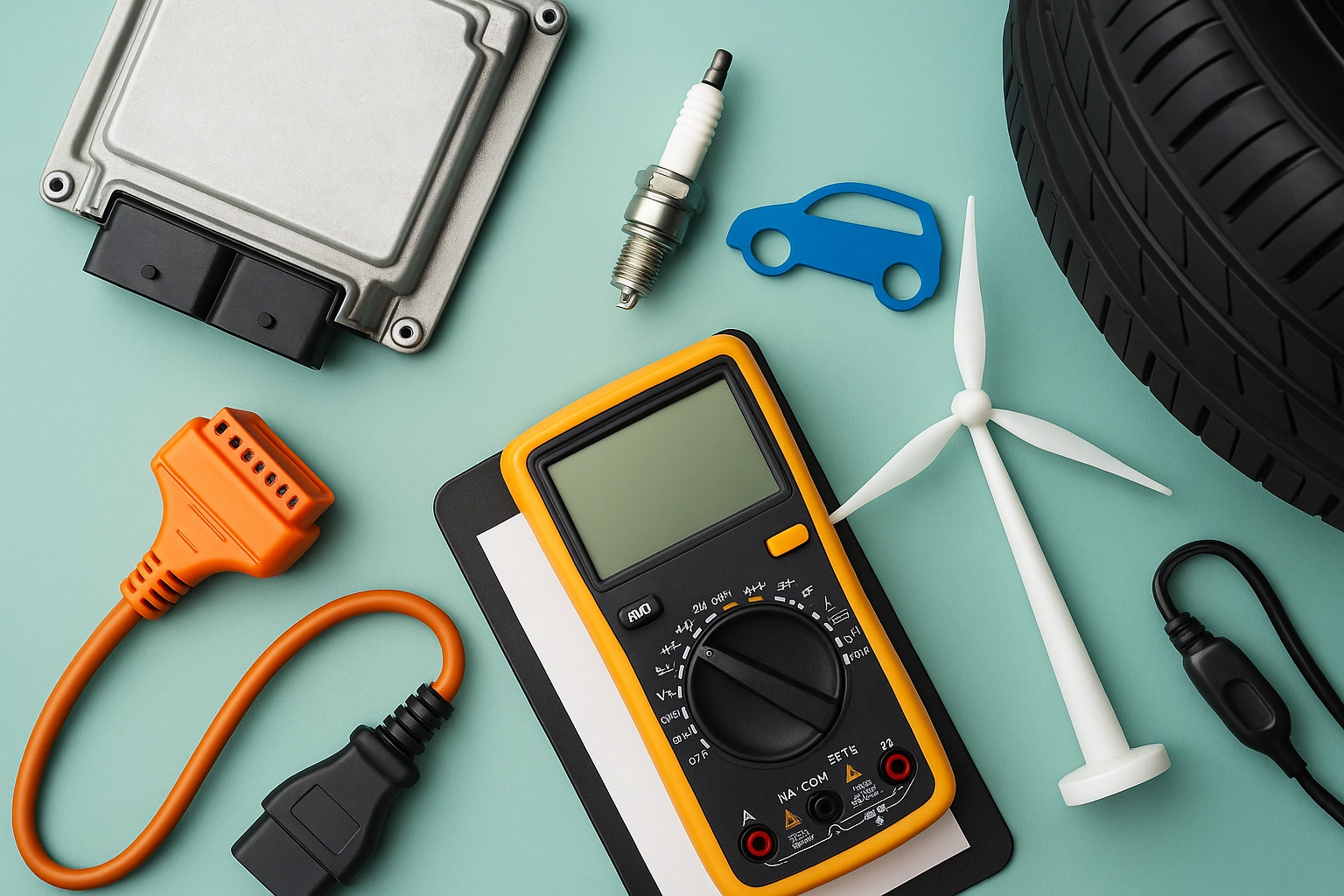IEC 63330 EV Short Circuit Safety Test
The IEC 63330 EV (Electric Vehicle) Short Circuit Safety Test is a critical procedure designed to evaluate the electrical safety of electric vehicles. This test ensures that during a short circuit, the vehicle’s components and systems are protected from damage or failure, thereby enhancing passenger safety.
During an electric vehicle's operation, various high-power electronic devices such as inverters, power electronics, and battery management systems generate significant heat and electrical stress. In the event of a short circuit, these stresses can cause overheating, arcing, or even fire hazards if not properly managed. The IEC 63330 test focuses on ensuring that under simulated short-circuit conditions, the vehicle’s components do not fail, and no dangerous arcs are produced.
The test involves subjecting the vehicle to a controlled short circuit scenario at various points in the electrical system. The aim is to verify that all safety mechanisms function correctly and that there is no undue stress on critical parts of the vehicle. This includes checking for proper operation of fuses, circuit breakers, and other protective devices.
The test procedure adheres strictly to international standards such as IEC 63330. Compliance with these standards ensures that the testing process is standardized across different manufacturers and regions, promoting global consistency in electric vehicle safety.
For quality managers and compliance officers, ensuring adherence to international standards like IEC 63330 is crucial for meeting regulatory requirements and gaining market access. R&D engineers can leverage this test to refine designs and improve the reliability of their prototypes. Procurement teams benefit by verifying that suppliers meet stringent safety criteria.
In practice, the test involves a series of steps including component identification, setting up the testing environment, applying short circuit conditions, and monitoring the response. Post-testing, detailed reports are generated for review and analysis.
The IEC 63330 EV Short Circuit Safety Test is essential in ensuring that electric vehicles meet stringent safety standards, thereby protecting both manufacturers and consumers from potential hazards. It plays a vital role in the development and certification process of electric vehicles.
Benefits
The IEC 63330 EV Short Circuit Safety Test offers numerous benefits to automotive manufacturers, R&D teams, compliance officers, and quality managers:
Ensures adherence to international safety standards.
Reduces the risk of product recalls due to electrical failures.
Improves brand reputation through enhanced consumer trust.
Promotes regulatory compliance and market access.
Saves time and resources by identifying potential issues early in the development process.
Enhances the reliability of electric vehicles, contributing to safer transportation solutions.
By incorporating this test into their quality assurance processes, automotive companies can ensure that their products meet the highest safety standards, thereby gaining a competitive edge in the market.
Industry Applications
| Application Area | Description |
|---|---|
| Battery Management Systems (BMS) | Ensures that BMS components are robust during short circuit events. |
| Inverters and Power Electronics | Verifies the safety of high-power inverters and power electronics under short circuit conditions. |
| Battery Packs | Protects battery packs from overheating and arcing during a short circuit. |
| Cable Assemblies | Assures that cable assemblies withstand the stress of potential short circuits without failure. |
Battery Management Systems (BMS): Ensuring safe operation under high-stress conditions is paramount for BMS components. The IEC 63330 test helps manufacturers verify the robustness and reliability of these systems.
Inverters and Power Electronics: High-power inverters and power electronics are key components in electric vehicles. This test ensures that they can handle short circuit events without failure, enhancing overall system safety.
Battery Packs: Battery packs are highly susceptible to damage during a short circuit. The IEC 63330 test helps ensure that these packs remain safe and operational under such conditions.
Cable Assemblies: Cable assemblies connecting various components within the vehicle must be reliable and robust. This test ensures their integrity, preventing potential hazards during short circuits.
These applications highlight the importance of the IEC 63330 EV Short Circuit Safety Test in ensuring a safe and reliable electric vehicle ecosystem.
Eurolab Advantages
As an accredited laboratory specializing in automotive testing, Eurolab brings several advantages to the IEC 63330 EV Short Circuit Safety Test:
State-of-the-art facilities: Our laboratories are equipped with advanced instrumentation and equipment, ensuring accurate and reliable test results.
Dedicated team of experts: Our team comprises experienced professionals who have extensive knowledge in electric vehicle safety testing.
Comprehensive reporting: Post-testing, detailed reports are provided, highlighting the performance of various components under short circuit conditions.
ISO/IEC 17025 accreditation: Eurolab’s laboratories are accredited to ISO/IEC 17025 standards, ensuring that our testing processes meet international quality requirements.
Comprehensive support: We offer full support throughout the test process, from initial consultation to final reporting.
The combination of our expertise and advanced facilities makes Eurolab a trusted partner for automotive manufacturers seeking to ensure the safety and reliability of their electric vehicle products.





